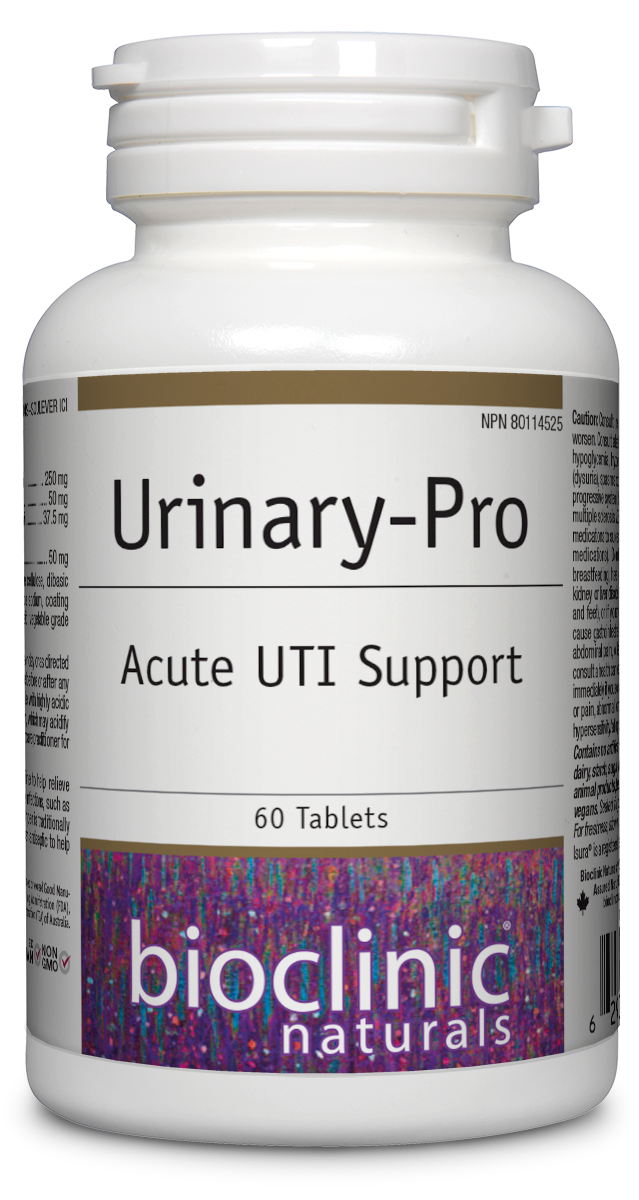
Acute UTI support
60 Tablets ( SKU: 9132, NPN: 80114525 )
Medicinal Ingredients
| Each Tablet Contains: | |
| Bearberry Extract (Arctostaphylos uva-ursi) (leaf) (20% arbutin) | 250 mg |
| Berberine (hydrochloride) | 50 mg |
| Juniper Extract 4:1 (Juniperus communis) (fruit) | 37.5 mg |
| Organic Echinacea Extract 6:1 (Echinacea purpurea) (herb top) | 50 mg |
Non-Medicinal Ingredients
Microcrystalline cellulose, dibasic calcium phosphate dihydrate, croscarmellose sodium, coating (carbohydrate gum, glycerin), silica, stearic acid, vegetable grade magnesium stearate (lubricant).
Dosage:
Recommended Adult Dose: 2 tablets 2 times per day or as directed by a health care practitioner. Take a few hours before or after any medication or natural health product. Do not take with highly acidic foods (e.g., citrus fruits and juice) or medications, which may acidify urine. For occasional use only. Consult a health care practitioner for use beyond one week.
Warnings:
Consult a health care practitioner if symptoms persist or worsen. Consult a health care practitioner prior to use if you have hypoglycemia, hypotension, leucopenia, fever, painful urination (dysuria), spasms, blood in urine, an auto-immune disorder or a progressive systemic disease such as tuberculosis, collagenosis, multiple sclerosis, AIDS, and/or HIV infection, or if you are taking medications to suppress the immune system (immunosuppressive medications). Do not use this product if you are pregnant, breastfeeding, have heart disease, high or low blood pressure, kidney or liver disorder, diabetes or edema (swelling of hands, face, and feet), or if you are taking products containing diuretics. May cause gastrointestinal discomfort such as constipation, vomiting, abdominal pain, or diarrhea, in which case discontinue use and consult a health care practitioner. Stop use and seek medical attention immediately if you experience dizziness, confusion, muscle weakness or pain, abnormal heartbeat, and/or difficulty breathing. Stop use if hypersensitivity/allergy occurs. Keep out of reach of children.
Allergens:
Contains no artificial colours, preservatives, or sweeteners; no dairy, starch, sugar, wheat, gluten, yeast, soy, egg, fish, shellfish, animal products, tree nuts, or GMOs. Suitable for vegetarians/ vegans. Sealed for your protection. Do not use if seal is broken. For freshness, store in a cool, dry place.
